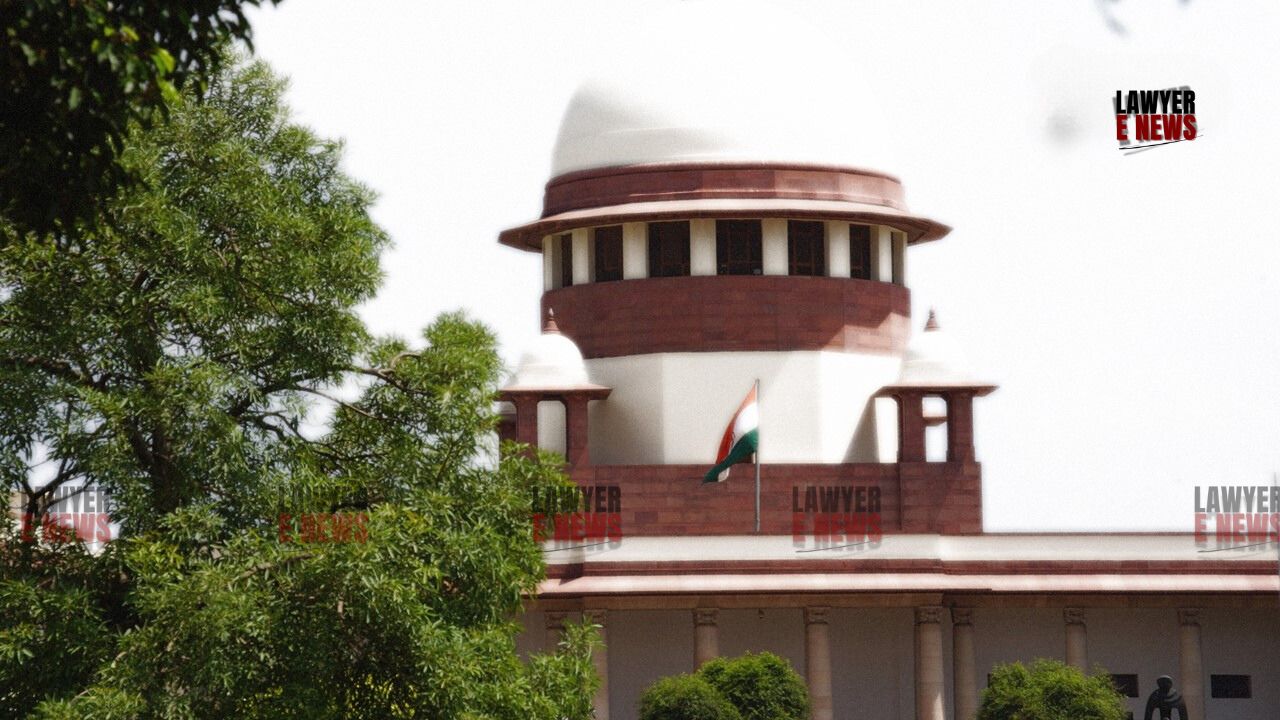-
by Admin
15 February 2026 5:35 AM



Today, the Supreme Court of India delivered a significant ruling in HMT Ltd. v. Smt. Rukmini and Others, quashing the Karnataka High Court’s order that had previously directed HMT Ltd. and the Union of India to either vacate or pay compensation for a disputed portion of land requisitioned for defense purposes. The Supreme Court ruled in favor of HMT Ltd. and set aside the High Court’s judgment, citing undue delay and concealment of material facts by the petitioners.
The dispute arose over land in Jarakabande Kaval Village, Bangalore North Taluk, requisitioned by the Ministry of Defence under the Requisition and Acquisition of Immovable Property Act, 1952. The petitioners, heirs of the original landowner, claimed rental compensation from 1973 and sought redelivery of the unacquired portion of the land. In 2019, the Karnataka High Court directed the respondents—HMT Ltd. and the Union of India—to either return the land or pay compensation along with interest dating back to 1973.
However, HMT Ltd. and the Union of India challenged the High Court’s decision, pointing to numerous factual inaccuracies and concealed details that significantly altered the case.
Delay and Laches: The Supreme Court emphasized that the 33-year delay in filing the writ petition was unjustifiable. The petitioners failed to provide any valid explanation for waiting decades to raise their claim. The Court highlighted that delay could be fatal to a case, especially when evidence becomes difficult to ascertain after such a long period. It ruled that the petitioners had slept over their rights, amounting to abuse of legal process.
"Delay by the authorities, at times, may constitute a cause of action. However, in this case, the inordinate delay and shifting positions of the petitioners reflect a lack of merit in the claims." [Para 13]
Suppression of Material Facts: The petitioners were found guilty of concealing key facts from the court, specifically the sale of part of the disputed land by their predecessor, Putta Narasamma, to a third party—Mohd. Ghouse. This land had been acquired by HMT Ltd. in 1958, but the petitioners did not disclose this transaction in their writ petition, misleading the court into believing that the land still belonged to them.
"A petitioner approaching a Writ Court must come with clean hands, disclosing all relevant facts. The deliberate suppression of material particulars by the petitioners in this case vitiates their claim entirely." [Para 12]
Jurisdictional Limits: The Court also noted that the matter involved disputed questions of fact, which are unsuitable for adjudication under Article 226. It ruled that the High Court of Karnataka erred in entertaining the writ petition, as the complexities of the case required detailed examination of evidence, which could not be adequately addressed in writ jurisdiction.
"Several disputed facts surfaced during the proceedings, and these are not issues that can be adjudicated within the writ jurisdiction of a High Court." [Para 17]
The Supreme Court thoroughly dismantled the High Court's 2019 ruling. The bench, led by Justice Sanjay Kumar and Justice Sanjiv Khanna, held that the concealment of facts, combined with the unexplained delay in filing the petition, warranted dismissal of the case. The Court refrained from imposing punitive costs, despite the petitioners' lack of bonafides.
The appeals filed by HMT Ltd. and the Union of India were allowed, and the High Court’s judgment was set aside in its entirety.
The Supreme Court’s ruling underscores the importance of transparency and timeliness in litigation, particularly in cases involving writ petitions. By dismissing the writ petition on grounds of delay and suppression of facts, the Court reaffirmed that petitioners must approach the court with clean hands and within a reasonable time frame.
Date of Decision: September 24, 2024
HMT Ltd. v. Smt. Rukmini and Others
